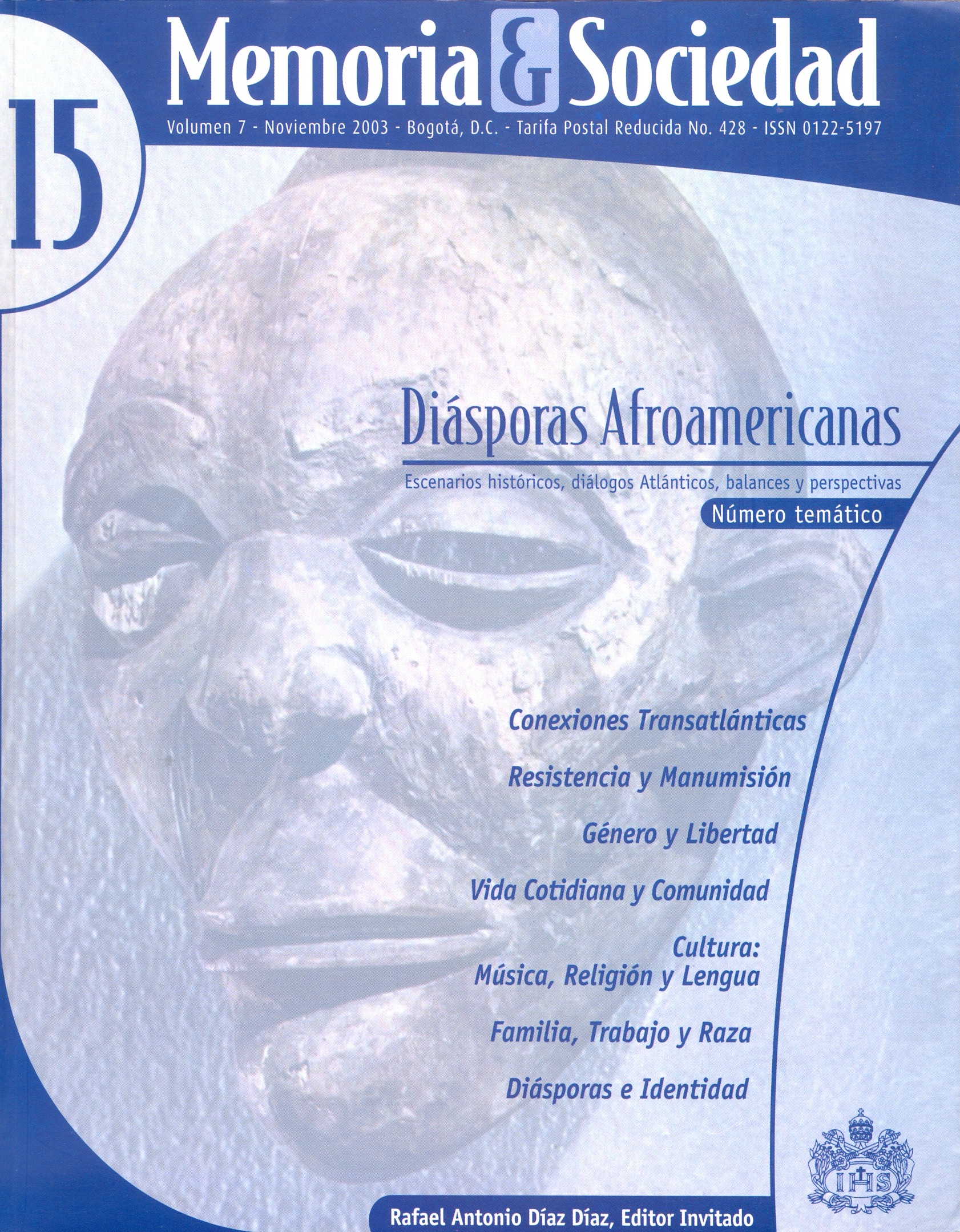Abstract
The conversion of the Africans to Christianity was a long process that began in Africa and concluded in the New World. The religious protection and the health of the soul of the slave, was, for the slave owner and the State, a permanent obligation. But carrying out this moral obligation involved a multitude of factors: Spaniards did not know African languages, massive numbers arrived at the principal ports of entry, contraband of slaves, a lack of ecclesiastic control due to the lack of priests and missionaries and non compliance on the part of slave owners. All of this meant that the Christianization of the slaves occurred with less rigor than with the Indians, whose conversion to Christianity was a priority during all stages of the conquest and colonization. In the essay that follows, I hope to show some aspects of this problem by studying the legislation, the ecclesiastic precepts, as well as the customs followed in the distinct places of destination of the African slaves. I have also attempted to focus this theme in the area of the River Plate and, accordingly, the paper is based on edited documentary sources in addition to documentation found in the National Archive of Argentina and the Archive of the Indies, in Spain.The journal Memoria y Sociedad is registered under a Creative Commons Attribution 4.0 International Public License. Thus, this work may be reproduced, distributed, and publicly shared in digital format, as long as the names of the authors and Pontificia Universidad Javeriana are acknowledged. Others are allowed to quote, adapt, transform, auto-archive, republish, and create based on this material, for any purpose (even commercial ones), provided the authorship is duly acknowledged, a link to the original work is provided, and it is specified if changes have been made. Pontificia Universidad Javeriana does not hold the rights of published works and the authors are solely responsible for the contents of their works; they keep the moral, intellectual, privacy, and publicity rights.
Approving the intervention of the work (review, copy-editing, translation, layout) and the following outreach, are granted through an use license and not through an assignment of rights. This means the journal and Pontificia Universidad Javeriana cannot be held responsible for any ethical malpractice by the authors. As a consequence of the protection granted by the use license, the journal is not required to publish recantations or modify information already published, unless the errata stems from the editorial management process. Publishing contents in this journal does not generate royalties for contributors.

